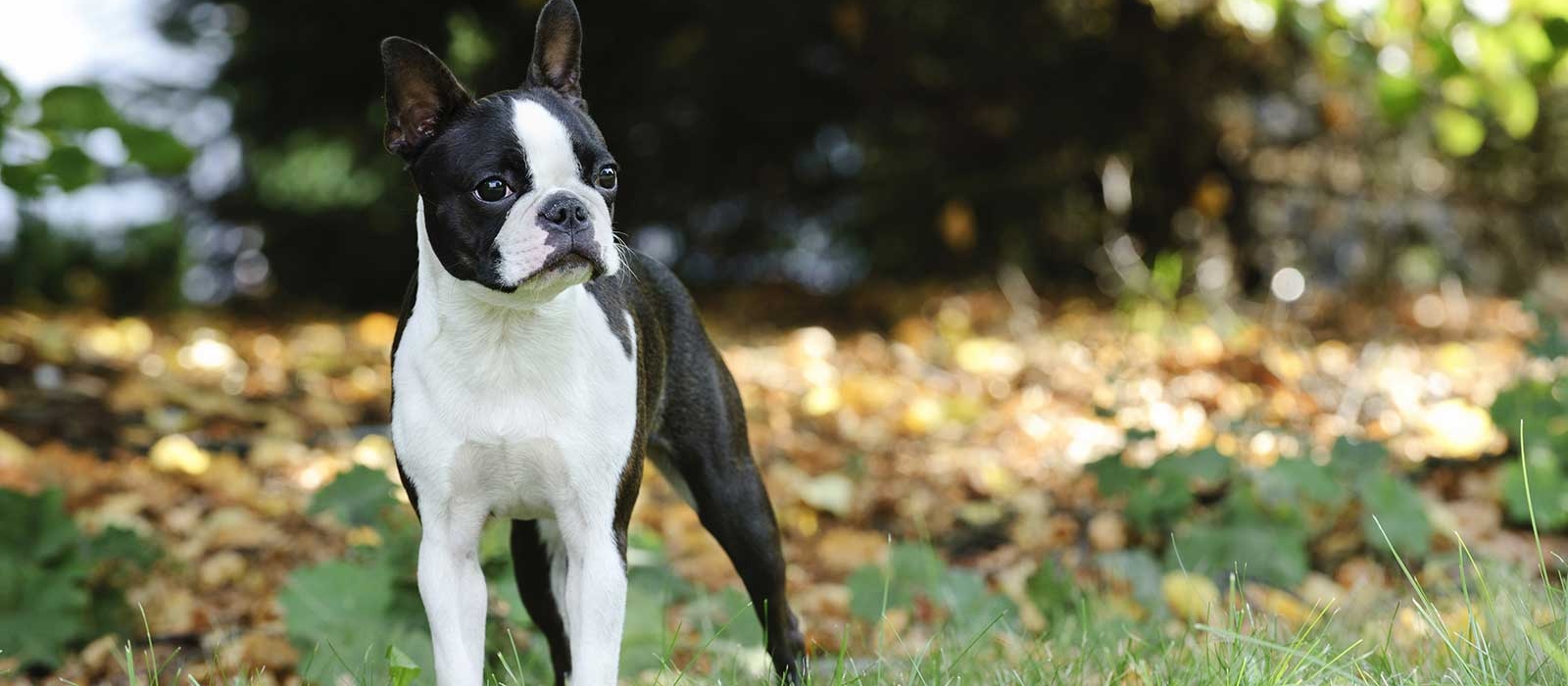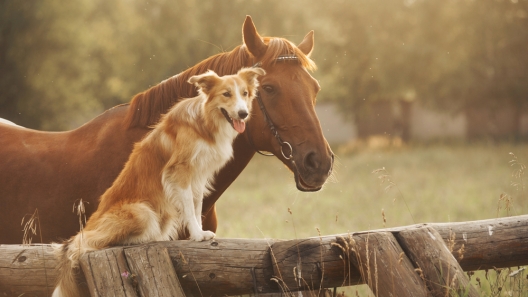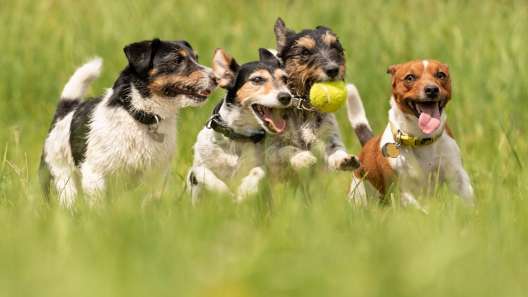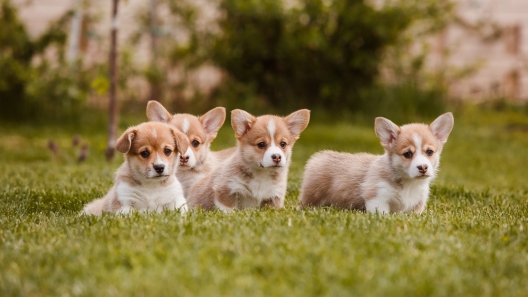-
Activity Level:
moderate
-
Shedding Level:
low
-
Grooming Level:
low
-
Trainability:
high
-
Good for Novice Owners:
high
-
Adaptability:
moderate
-
Kid/Pet Friendly:
often
-
Prey Drive:
low
-
Watchdog:
aware
- Average Size: Small
- Average Lifespan: 11-13 years
- Registered?: aca, akc
Boston Terrier Dog Breed Information
Overview
Temperament
Adaptability
Health
Owner Experience
Grooming
Activity Level
Size
Life Span
Did You Know?
The Boston Terrier, sometimes affectionately referred to as the “American Gentleman” due to their classic tuxedo appearance, is a non-sporting breed. They originated in the United States around 1870 and were the first non-sporting dog breed to originate in the U.S. The Boston Terrier was recognized by the AKC in 1893.
Boston Terriers, or Bostons, are small, compact dogs with erect ears and short tails. In addition to being great companions, Boston Terriers also tend to excel in dog sports. They can often be found training and competing in agility, tracking, flyball, and more. With their outgoing, friendly personalities, they are one of the most popular dog breeds and are also a popular choice for therapy dogs.
The Boston Terrier is an intelligent, enthusiastic, affectionate, and playful dog breed. They tend to have a gentle, sweet disposition and a friendly personality. As long as they have been socialized properly, they tend to get along well with children, other dogs, and other pets.
They even tend to be open and friendly to meeting strangers, even if they may bark to alert you. If you don’t train your dog to stop barking early, Bostons can be prone to barking a lot. Generally, it’s not an issue if you have done some training with them on it and they are well-socialized.
Bostons are highly adaptable dogs. They thrive in apartments as well as larger homes with yards where they can run. They do well in most climates. However, they are a snub-nosed dog breed, which makes them even more sensitive to heat.
Their short coat also means they may need to bundle up in some winter dog products to stay warm while out on walks in the winter. Because Boston Terriers bond closely with their families and thrive on attention from them, they do not like to be left alone for long periods of time.
Potential health concerns to be aware of in a Boston Terrier can include cataracts, glaucoma, corneal ulcers, patellar luxation, allergies, and deafness. Good breeding practices make a big difference in the health of puppies.
Reputable breeders will screen their dogs to avoid passing preventable issues to puppies, so make sure you ask about the health and history of both parents. You can also ask about any health tests or clearances that have been done.
Like Boxers, Pugs, and more, Boston Terriers also tend to have sensitive digestive systems, which makes them gassy dogs, especially when their diet is not closely monitored. Because they are a brachycephalic breed, meaning they have a small head and short muzzle or snub-nose, Bostons are prone to snoring and can be prone to reverse sneezing.
Although reverse sneezing sounds horrible as the dog is making snorting/gagging sounds to clear the mucus from their palate, it does not harm the dog in any way. Doing some things to help your dog through seasonal allergies can help cut down and manage the mucus that leads to reverse sneezing during peak allergy season.
Boston Terriers are an intelligent dog breed that tends to pick up on things quickly and learn fast. Although they can be stubborn at times, they tend to be easy to train, eager to please their owners, and a good fit for owners of all experience levels. Puppy training classes offer several benefits, so they can be a good idea even if you don’t necessarily need them for help with training.
One of the facts about Boston Terriers is that they do well with a variety of verbal cues and commands. Because they are sensitive to the sound of your voice and in tune with you, they can be trained to respond to various intonations. Due to their high sensitivity, they tend to take any negative feedback personally and can become stubborn, so it’s important to be patient, consistent, and positive during training.
Bostons have a short, smooth coat that should be black, seal, or brindle with white markings. They shed a little year-round. Brushing weekly and the occasional bath are usually enough to keep a Boston Terrier’s coat healthy and looking good.
In addition to coat care, you will also need to take care of your Boston Terrier’s nails, eyes, ears, and teeth. Cutting your dog’s nails once or twice a month keeps them from growing too long and causing issues. Bostons are loved for their big, round eyes, but they are also prone to getting debris in their eyes, which causes irritation.
Check their eyes every day for redness, irritation, debris, discharge, etc. Saline eye drops are a classic item for a dog first aid kit, and are useful to carry around in case you need to flush out your Boston’s sensitive eyes. Checking ears weekly and carefully cleaning them as needed can help prevent ear infections.
Gum disease in dogs is one of the most common health issues and can have serious consequences. As a small dog breed, a Boston is even more prone to developing it and other dental diseases later in life. This makes good dental care for dogs early and consistently throughout your dog’s life essential. Brushing teeth daily along with cleanings at the vet as needed are a good start.
These dogs may be small, but they love to play! Their exercise needs sit in a low-to-moderate range. Although they will have bursts of high energy when they play, daily walks and some playtime are usually enough for them. Just have some toys around and things to keep them busy when these bouts of hyperactivity occur.
Even though they are small dogs, Boston Terriers tend to be versatile and athletic. Although they are brachycephalic dogs and you do need to be careful, there are safe ways to exercise flat-faced dogs. It may vary from dog to dog, but a Boston will generally be happy to spend time being active with you. Just keep an eye on them to make sure they aren’t overheating trying to keep up with you.
A fully-grown Boston Terrier usually stands 15-17 inches tall and weighs 12-25 pounds.
Boston Terriers generally live for 11-13 years on average, and can sometimes live well into their teens.
In addition to being the official state dog of Massachusetts, the Boston Terrier is a noted college mascot. Rhett the Boston Terrier is the mascot for Boston University. Wofford College, located in Spartanburg, also features a Boston Terrier as its mascot.









